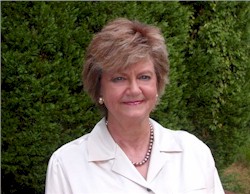|
|
|||||
|
Be Neutral |
|||||
|
Case Watch: For Mediators The following case analyses are part of a regular series we publish to help neutrals broaden their knowledge of rulings of Georgia’s appellate courts that may affect your practice. Remember: mediators should not give legal advice or opinions Review of Avren v. Garten, decided May 16, 2011, appeal to the Georgia Supreme Court of a ruling by Judge Mary Staley, Cobb County Superior Court. CaseWatch for Mediators: Custody Disputes Present Pitfalls, Opportunities Disputes over custody of children continue to be a primary cause of post-divorce clashes, and those battles can last for years. In Avren v. Garten, the parties were divorced in 2003, yet they were still fighting over custody in May 2011. Not only is the Avren case an example of how long parents can fight over their children, but it is also an example of how a simple check on the pre-printed parenting plan form can create significant legal complications. In Avren, the parties’ 2006 final consent modification order awarded the father final decision-making authority for the minor child with respect to health and medical issues. The trial court found the mother in contempt for disregarding the father’s decision concerning the therapist to whom she took the child. Mother acknowledged at the contempt hearing that she had taken the child to a therapist that father disapproved of and had sent the therapist’s bills to the father for payment. Since there was evidence to support the trial court’s determination that mother willfully disobeyed a prior court order, the Supreme Court on appeal did not disturb the trial court’s finding of contempt against the mother. Divorce mediators routinely help parties discuss and design parenting plans during divorce proceedings. Mediators need to make sure that their parties, especially pro se parties, understand that when the parties agree that one of them will control medical decisions, that also includes mental health decisions as well. The decision of which parent makes the medical decisions is not one that parties should take lightly. Often, the choice of therapist or counselor in a custody case can have a major impact on which parent the court chooses to be primary custodian of the child. In Avren, one of the mother’s prior dismissed petitions was in fact for a change of custody. An unusual custody arrangement fashioned by a New York judge was the subject of an article in the June 21, 2011, issue of the Fulton County Daily Report. According to the story, after a lengthy custody trial over “J,” a minor male child, Justice Ellen Gesmer determined that both parents individually were incapable of providing complete parenting. She ruled that “neither parent has the skills or qualities necessary to be their child’s sole custodian, nor do they have the communication skills essential to joint custody. To the extent that any issues (such as choice of school or obtaining a passport) requires that the child has a custodial parent, I hold that each of them has custodial rights, consistent with this decision.” To accommodate the parents’ strengths and weaknesses, Justice Gesmer tailored what she called a “parallel custody arrangement”: the boy’s “gruff” father would oversee his schooling and health needs, while the boy’s “warm” mother would make decisions about religion, summer and extracurricular activities. The father was better able to provide structure for the child, the judge said. Therefore “J” would live primarily with the father during the school year, and he will stay with the mother during the summer and school breaks. The article noted that so-called parallel parenting arrangements have become increasingly common over the past decade as studies have shown better outcomes for children of divorce when both parents were involved in their lives. “It’s becoming more common because the mental health community and the legal community are sharing what each other knows,” said New York Attorney Lawrence Braunstein, adjunct professor at Hofstra Law School and co-chair of the New York State Bar Association’s Family Law Section Child Custody Committee. “I think this decision and this approach is the right way to do it. It acknowledged there’s not an all or nothing [approach to custody].” The article confirms what mediators have always told custodial parents: Try to put your differences aside for the sake of your child. Once judges become accustomed to unusual arrangements like “parallel” custody, perhaps we mediators can harness the creativity of divorcing parties to help them craft better outcomes for their children.
|
|||||

